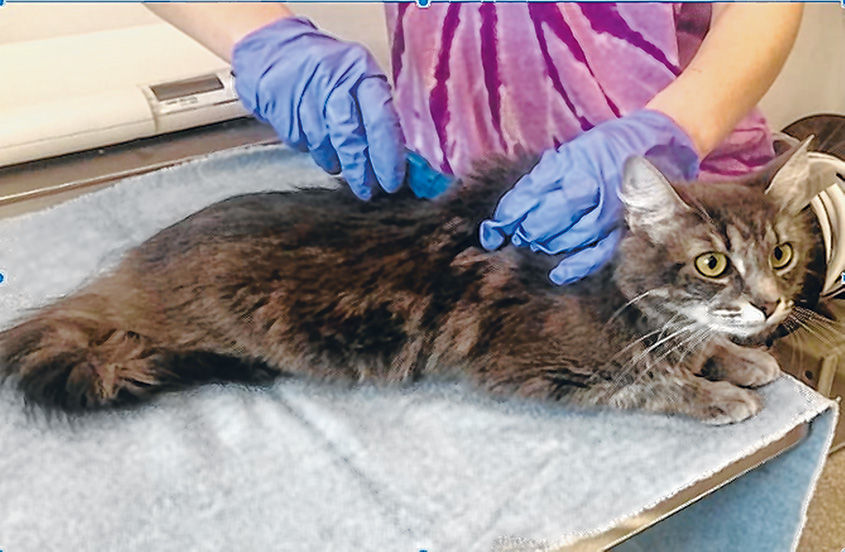- August 8, 2022
- No Comment
- 5 minutes read
Animal Chronicles: Missing pets benefit from being microchipped – The Daily Gazette – The Daily Gazette

Having your pet microchipped is a painless procedure. The chip is implanted using a small needle between the shoulder blades, and no anesthetic is required. (Courtesy APF)
By DEBRA JENNINGS
We all know how important our animals are to us. They come into our lives and quickly become part of our families, so there’s no question how upsetting it is when one of them goes missing.
In fact, one third of all family pets will get lost at some point in their lives.
There are several important steps that you can take to ensure that your pet is returned if they get lost. The first is a collar with an ID tag that includes your email address and/or phone number. Very often, missing pets are picked up by a Good Samaritan, an animal control officer or a police officer. And if they have an ID tag, they are often returned to the owner without being brought to a shelter.
Another way to increase the chances of being reunited with your pet is to have them microchipped. Microchipped dogs are more than twice as likely to be returned to their owners. And for cats, a microchip makes a safe return more than 20 times as likely. Microchipping is a very quick and painless procedure: The chip is implanted using a small needle between the shoulder blades. No anesthetic is needed and there is no healing time.
At the Animal Protective Foundation (APF), we microchip every pet before they are adopted. Recently we began chipping every unchipped cat and dog that is spayed or neutered at our clinic.
Pets who don’t have an ID tag are often brought to a local vet’s office or shelter if they are found. At APF, the first thing we do is check for a microchip using a hand scanner that is waved over the animal’s body in hopes of finding a chip that includes the guardian’s information.
In addition to getting chipped, it is also important to register the microchip. We recommend listing yourself and also including several numbers of others who may also be reached in case your pet is found. Sometimes numbers get changed, so leaving multiple contacts helps ensure that you can be reached. Also, remember to update your chip registration if you move or change your phone number.
If your pet does go missing, your first step should be to reach out to your local shelter or vet’s office to see if they have been brought in. Talk to neighbors in your area to see if they have seen your pet. Social media is also a great resource to help spread the word quickly that your pet is missing.
This will trigger people to be on the lookout, and if they see your pet to contact you right away. Set up food and personal items such as their favorite bed or blanket outside your home. Dogs and cats have amazing senses of smell and are able to pick up a scent from as far as 12 miles away.
If your pet is microchipped, APF is hosting a Check the Chip Day drive-up event on May 15 from 10 a.m. to 2 p.m. at our shelter at 53 Maple Ave. in Glenville. This is a national event created by the American Veterinary Medical Association. Our staff will scan your pet and provide the microchip number and registry so you can verify that your information is up to date.
If your pet is not microchipped we will be offering a special price on May 15 of only $20 to get your pet microchipped and registered. No appointment is necessary for either service, and you can call 518-374-3944 for information.
Debra Jennings is the client services manager at the Animal Protective Foundation. APF contributes Animal Chronicles articles and welcomes animal-related questions and stories about the people and animals in our community. Visit animalprotective.org, follow us on social media @AnimalProtectiveFoundation or email [email protected]
Categories: Life and Arts, Scotia Glenville

